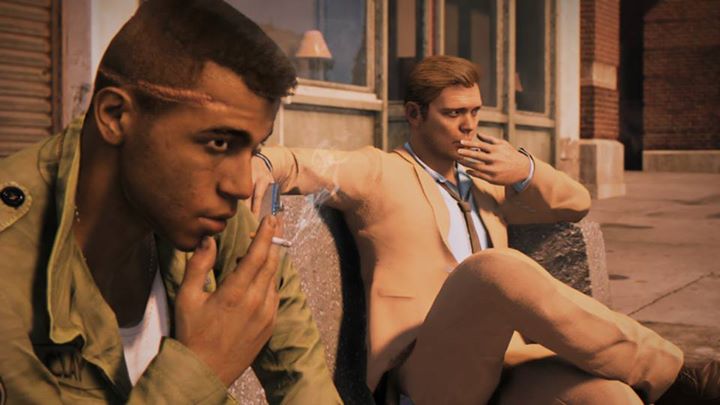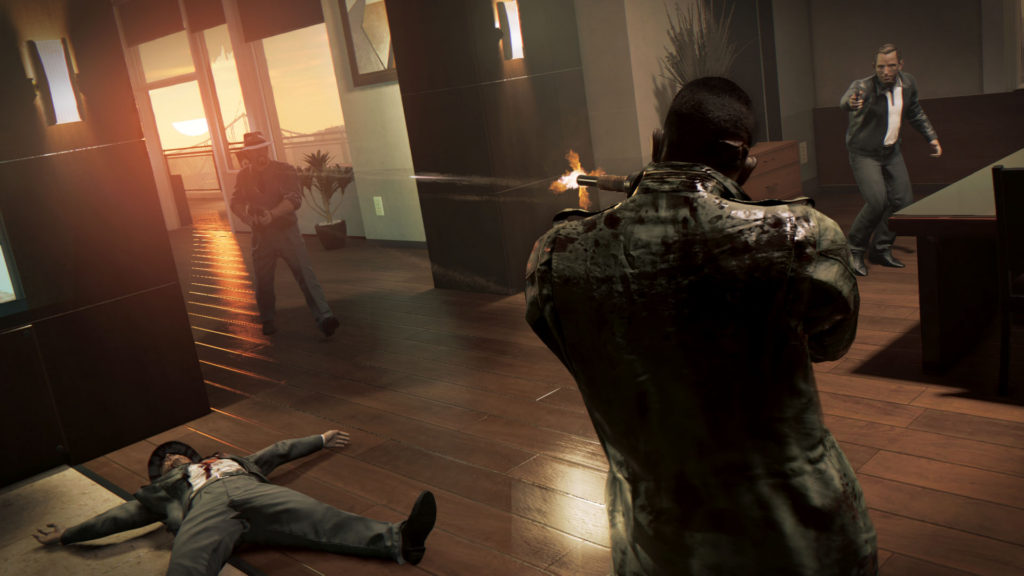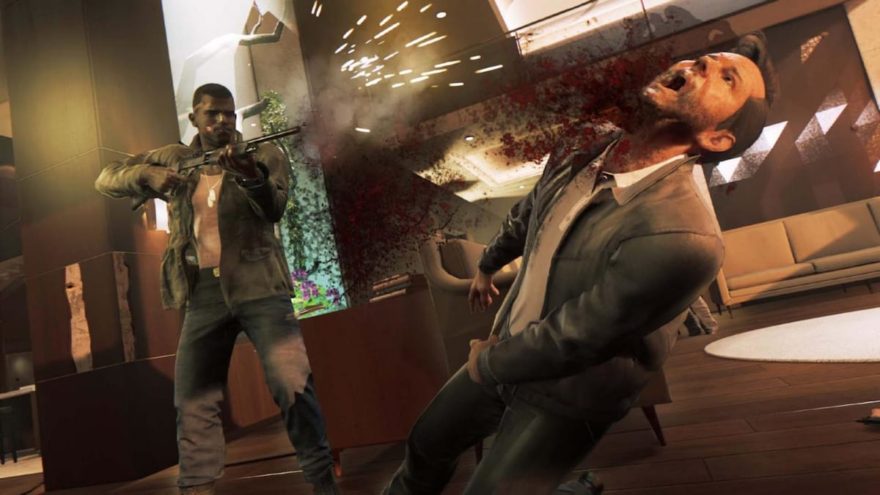There’s an attractive quality to the crime stories of the first two Mafia games. Two protagonists down on their luck—Tommy Angelo in the first and Vito Scaletta in the second—find success through a life of crime, wanting nothing more than to rise through the ranks, to be wealthy, to be a “Made Man.” Mafia III doesn’t care for that.
Were it a different Mafia game, you may look at Mafia III’s Sal Marcano as a father figure, assisting your transition to the Italian mafia. Sal’s son, Georgi Marcano, might be your best friend, your confidant. In a different Mafia game, you’d be expected to forgive the sins of the Marcanos, because you knew them not first as criminals, but as people.
In a different Mafia game, you would learn who the men behind the guns were, you would be asked to empathize with their bloodshed as it benefited the family—after all, family is everything. The violence would be attractive, because one day, you may sit at the head of the table, drinking fine scotch, smoking illegal cigars, and giving orders that will one day turn your family into the city’s most powerful mob. It’d be attractive, flashy, and the antithesis of what Mafia III actually is.

Where the first two games glorify violence and crime, their newest brother objectifies it. It trades in the rose tint of their bloodstains for grit, grime, and horror. Mafia III’s protagonist, Lincoln Clay, has only one objective: to gut the very type of crime syndicate you spent two previous games trying to run. To burn everything the Marcanos hold dear to the ground after they betrayed Clay by killing members of his family and the black mafia.
Six years after the last Mafia game, Mafia III feels like the step the series is supposed to take. It would be tiresome to tell yet another story of a young man trying to pay his dues to a new family. And so it’s fitting that Mafia III takes place in 1968, as it almost feels like it’s rebelling against its predecessors, as if developer Hangar 13—which was built to take on the series—rejected the status quo set forth by the series’s creator 2K Czech (formerly Illusion Softworks).
Lincoln Clay is a man controlled by anger, blinded by revenge. Sure, he too is taking control of city districts and collecting the wealth that comes, but he pours all of his earnings into his objective. He doesn’t buy cars, he buys bullets; he doesn’t dream of mansions, he dreams of murder; and he doesn’t kill professionally, he kills by necessity. The murders he commits each have a tangible weight to them, as each life taken is another step towards exacting the revenge he obsesses over. Mafia III’s violence matches that tone. It’s gruesome, horrific, and hard to look at. But, more than that, it’s personal, intimate.
The game often asks you, the player, to parallel Clay’s headfirst dive towards revenge. You press the button that stabs a man repeatedly in the face; you make the choice to hold the “O” button down long enough to make Clay dig his barrel down into the throat of a man’s mouth as he looks back in abject terror, before shooting him through the back of the head. You didn’t have to be that brutal, you could have quickly pressed “O” and foregone the brutal execution entirely by quickly knocking the guy out or breaking his neck. But you’re along for the ride—sometimes you’re just as mad as Clay, you share his hatred, and you may surprise yourself at how often you want your murders to be as horrific as possible. As if you yourself are dealing back the pain inflicted physically and mentally to your virtual character.

In a different Mafia game, you might shoot from afar. A murder might be celebrated with a promotion. You might take out a target and be rewarded with a cut scene of your character buying a fancy new car, or a montage that shows him slowing down his a life of crime to get married, to have a daughter.
But in Mafia III, a murder is only met with more anger. Nothing ever gets better. Hell, Clay—in a very unsubtle metaphor—lives in a house that was set on fire the night Marcano betrayed his family, its walls blackened and its interior falling apart; it reflects the inner workings of his mind. Clay’s target may be to prevent that aforementioned mafioso from settling down. Why should he care about his family when no one cared about his own?
In Mafia III, you tear apart everything you hoped for in Mafia (2002) and its 2010 sequel. In that respect, it sets itself apart from its predecessors as an intentional “fuck you” to the life of crime you might have daydreamed about while playing the first two games. Mafia III forces you to light the match that will burn down everything you wanted as a corrupt, rich white man.
